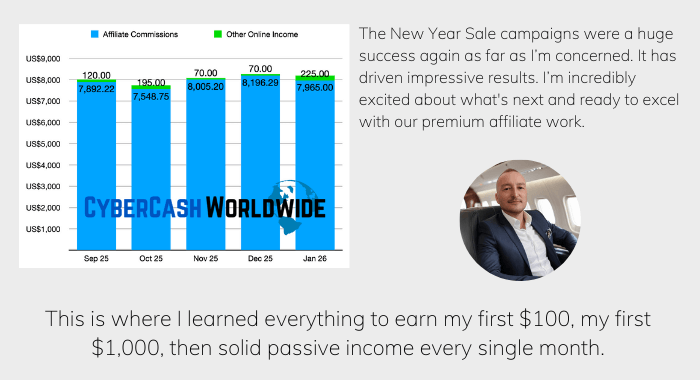You're scrolling through your phone at 2 AM, somehow three hours deep into TikTok, wondering how the hell you got here when you only meant to check one message. Or you're staring at your credit card statement, confused about why you're paying for six different streaming services when you only remember signing up for two. Welcome to the world of dark patterns, honey - those sneaky little design tricks that make you do things you never actually wanted to do.
These aren't accidents or happy coincidences for tech companies. Teams of very smart, very well-paid psychologists spend their days figuring out exactly how to hack your brain and empty your wallet. They study how your mind works when you're tired, stressed, horny, or just plain bored, then design apps and websites to exploit those exact moments of weakness. The scary part? Most of us have no clue this is happening until we're already hooked, subscribed, or broke.

Why Your Brain Falls for This Crap Every Single Time
Your brain has two modes: the quick-thinking "oh shit" mode that reacts instantly, and the slow-thinking "let me consider this" mode that actually weighs your options. Dark patterns are specifically designed to trigger that panicky first mode while completely bypassing your ability to think things through. Having someone yell "FIRE!" in your brain every time you see a red "ONLY 2 LEFT!" button happens even when you're just browsing for fun and don't actually need whatever they're selling.
The really messed up part is how these companies study your behavior patterns to get better at manipulating you personally. Every click, every pause, every time you almost buy something but back out - they're tracking all of it. Then they use that data to figure out your specific psychological weak spots and hit them harder next time. Some people are suckers for fake urgency, others fall for social pressure, and others crack under the fear of missing out. The algorithms learn your particular flavor of weakness and serve it up on a silver platter.
What makes this especially unfair is that awareness doesn't actually protect you that much. You know exactly how these tricks work, but your brain still responds to them automatically. Knowing that jump scares in horror movies are coming works the same way - your rational mind knows the scare is fake, but your body still jumps. The manipulation happens faster than your conscious mind intervenes, which is exactly what these companies are counting on.
The Subscription Quicksand
Netflix makes cancellation dead simple because they're confident their content will bring you back when you want it. Compare that to your gym membership, which requires you to show up in person during business hours, talk to a human being who will guilt-trip you about "giving up on your fitness objectives," and possibly even write a letter explaining why you want to leave.
The gym isn't making cancellation hard because they care about your abs - they're betting that you'll find the hassle so annoying that you'll just keep paying rather than deal with it. Most people do exactly that, which is why gyms operate with way more members than they could actually accommodate if everyone showed up.
Dating apps are especially brutal here. They'll show you attractive profiles to get you hooked, then suddenly make those people disappear behind a paywall. You've already invested time swiping and building up hope about potential matches, so paying feels like the only way to not waste that investment. The whole thing is designed to catch you at your most vulnerable moment - when you're lonely and hopeful - then squeeze money out of those feelings.
The worst subscription traps are the ones that start free or cheap, then gradually increase the price while making the service feel more necessary to your daily routine. By the time you're paying triple the original price, canceling feels like losing a part of your identity rather than just ending a business transaction. You've been slowly boiled like a frog, and jumping out suddenly feels impossible even when the water is scalding hot.
The Fake Urgency Hustle
Amazon's "only 3 left in stock" warnings work so well because scarcity triggers genuine panic in your brain, even when you logically know that Amazon probably has warehouses full of whatever you're looking at. Your ancient monkey brain doesn't distinguish between "the last mammoth in the valley" and "the last discounted phone case in this particular fulfillment center." Both situations activate the same fear response that pushes you to grab resources before someone else does.
Flight booking sites are masters of manufactured urgency, showing you how many other people are "currently looking at this flight" or warning that prices have increased for your route in the last 24 hours. Most of this information is either completely made up or so manipulated that it's basically fiction. But it works because it taps into your fear that hesitating will cost you money or leave you stranded without travel options.
The cruelest fake urgency tactics target your emotions rather than your wallet. Social media platforms will send you notifications like "you have memories to look back on today" or "your friends are wondering where you've been" to make you feel like you're missing out on connections. These messages are automatically generated based on algorithms, not genuine concern from your actual friends, but they still trigger real feelings of social anxiety and loneliness that drive you back to the app.

The Attention Economy Is Basically Digital Cocaine
Social media platforms don't make money from making you happy - they make money from keeping you glued to your screen for as long as possible, regardless of how that makes you feel. The business model is fundamentally based on addiction, not satisfaction. Your misery is profitable as long as it keeps you scrolling, which is why algorithms often show you content that makes you angry, jealous, or anxious rather than stuff that actually improves your mood.
The infinite scroll design removes all natural stopping points from your browsing experience. Books have chapters, TV shows have commercial breaks, even conversations have natural pauses - but your Instagram feed just keeps going forever. Your brain never gets a signal that stopping time has arrived, so you end up in these weird trance states where hours disappear without you really experiencing or remembering much of what you saw. Digital junk food that fills you up without supplying any real nourishment describes this perfectly.
The notification system is designed to interrupt whatever you're doing and drag your attention back to the app, even when nothing actually notable waits for you there. You get trained to respond to these digital leashes like a dog responding to a bell, dropping whatever you're doing to check your phone. The apps deliberately make notifications unpredictable - sometimes they're urgent, sometimes they're bullshit - because unpredictable rewards are the most addictive kind of reinforcement schedule.
The Endless Scroll Trap
TikTok perfected the art of removing any friction between you and the next piece of content. There's no clicking, no loading, no decision-making required - the next video just starts playing automatically before you've even processed what you just watched. This creates a hypnotic state where you're consuming content faster than you consciously evaluate your enjoyment or desire for continuation. By the time you realize you've been watching for hours, you're already so deep in the hole that climbing out feels overwhelming.
The algorithm learns what keeps you watching, not what makes you happy, which means it gravitates toward content that triggers strong emotional reactions rather than positive ones. Drama, outrage, and anxiety are more compelling than contentment, so that's what gets served up. You end up in a feedback loop where the app learns to make you feel worse because feeling worse keeps you watching longer.
The "just one more" psychology is the same mechanism that keeps people pulling slot machine levers. Each video could be the really good one, the funny one, the one that makes this whole session worth it. But that payoff is deliberately rare and unpredictable, which makes you keep searching for it long past the point where you're actually entertained.
The Social Pressure Cooker
Instagram stories expire after 24 hours, creating artificial urgency around casual social updates that don't actually need to be urgent. You feel pressure to check regularly so you don't "miss" something from your friends, even though most stories are just random photos of someone's lunch. The temporary nature makes everything feel weightier than it actually is, like you're getting exclusive access to someone's life rather than just seeing another mundane update.
LinkedIn manipulates professional anxiety by showing you updates about your connections getting new jobs, promotions, or achievements. This creates a constant feeling that everyone else is advancing their career while you're standing still, even though you're only seeing the highlight reel of people's professional lives. The algorithm prioritizes these success updates because they make you feel inadequate enough to spend additional time on the platform trying to network or improve your own professional image.
Dating apps exploit your fear of being alone by showing you potential matches that disappear if you don't act quickly enough. The "someone liked you" notifications are designed to create urgency around romantic connections, making you feel like love could slip away if you don't immediately upgrade to see who it was. Most of these likes are from people you wouldn't be interested in anyway, but the mystery keeps you hooked and hoping.

When Manipulation Gets Really Personal and Gross
Companies don't just use general psychological tricks - they build detailed profiles of your individual vulnerabilities and target them specifically. If you tend to shop when you're stressed, you'll get promotional emails during times when your other app usage suggests you're having a rough week. If you're prone to FOMO, you'll see additional limited-time deals and exclusive promotions. The manipulation becomes personalized torture, designed to hit your specific psychological weak spots with laser precision.
The targeting gets especially predatory when it focuses on people who are already struggling. Gambling apps advertise heavily to people with gambling problems, payday loan services target people who are already in debt, and diet products get pushed to people who already have unhealthy relationships with food. These companies aren't trying to help solve these problems - they're trying to profit from them by making them worse.
Young people and elderly users get hit hardest because they have the least experience recognizing manipulation tactics. Teenagers are especially vulnerable to social pressure and identity-based marketing, while older adults often struggle with interfaces designed to be confusing. Both groups have less practice defending themselves against sophisticated psychological manipulation, making them ideal targets for the most aggressive tactics.
The Teen Mental Health Disaster
Instagram's algorithm has been caught red-handed promoting content about self-harm, eating disorders, and depression to teenage users because that content generates high activity levels. The company's own internal research showed that their platform makes teenage girls feel worse about themselves, but they kept optimizing for activity anyway. Your teenage brain is literally being rewired by algorithms that prioritize profit over your psychological wellbeing.
Social media platforms exploit the fact that teenage brains are hypersensitive to social feedback and peer approval. Every like, comment, and share triggers a dopamine hit that's much stronger in teenagers than adults, making teens especially vulnerable to social media addiction. The platforms know this and design their features to maximize these social feedback loops, turning normal teenage social development into a profit center.
The comparison culture fostered by these platforms is particularly toxic for young people who are still figuring out their identity and place in the world. You're constantly seeing edited, filtered, curated versions of other people's lives while comparing them to your own unfiltered reality. This creates unrealistic standards for everything from physical appearance to lifestyle success, causing widespread anxiety and depression among heavy social media users.
What Do You Advocate?
The Financial Desperation Trap
Buy-now-pay-later services like Klarna and Afterpay specifically target people who don't actually have the funds for what they're buying, then make the debt feel manageable by breaking it into smaller payments. They partner with retailers to present these services at the exact moment when you're already emotionally invested in a purchase but don't have the cash. The psychological framing makes it feel like you're getting a discount or special deal rather than taking on debt with potential consequences.
Payday loan apps use location data and spending patterns to target people during their most financially vulnerable moments - like right before rent is due or when they've just had an unexpected expense. The apps position themselves as helpful solutions rather than predatory lenders, using friendly language and quick approval processes to make borrowing feel casual and consequence-free. Most users end up trapped in cycles of debt that are much costlier than traditional credit options.
Cryptocurrency and day trading apps target people who are desperate to improve their financial situation quickly, using testimonials and success stories to make gambling feel like investing. They supply just enough educational content to make users feel informed while encouraging increasingly risky behavior through gamification and social features. The house always wins, but the apps make individual users feel like they're the exception who will beat the system.
The Loneliness Exploitation
Dating apps deliberately create artificial scarcity around matches and conversations to make genuine connections feel precious and urgent. You'll get notifications about matches that expire or conversations that disappear if you don't respond quickly enough, creating anxiety around what should be a natural process of getting to know someone. The apps profit from your loneliness by making you feel like you need to pay for better access to potential partners.
Social media platforms exploit your fear of being forgotten or left out by showing you how much fun your friends are having without you. The algorithm prioritizes content that makes you feel like you're missing out on social experiences, driving you to spend additional time on the platform trying to stay connected. Your genuine need for social connection gets weaponized against you to increase activity metrics.
Online forums and discussion boards sometimes become manipulative by fostering unhealthy dependency relationships between users and platforms. Some spaces deliberately create drama or conflict to keep members active and posting, while others use exclusive access or status systems to make leaving feel like losing part of your identity. Your need for belonging gets exploited to create unpaid labor in the form of constant content creation and moderation.

How to Fight Back Without Losing Your Mind
The first step in protecting yourself is recognizing that you're not weak or stupid for falling for these tricks - you're human, and these tactics are specifically designed by teams of experts to exploit normal human psychology. Everyone falls for manipulation sometimes, and beating yourself up makes you vulnerable to future attacks. The objective isn't to become paranoid about every digital interaction, but to develop healthy skepticism about interfaces and deals that seem designed to rush your decisions.
Setting up barriers between yourself and impulsive decisions works better than relying on willpower alone. Remove saved payment information from shopping apps, use app timers to limit social media use, or keep your phone in another room when you're trying to focus. These structural changes acknowledge that these platforms are designed to overwhelm your self-control, so you need systems that work automatically rather than depending on your ability to resist temptation in the moment.
Regular audits of your digital life help you identify where manipulation has succeeded and course-correct before things get too expensive or time-consuming. Most people have no idea how much they're actually spending on subscriptions or how much time they're spending on various apps until they sit down and add it all up. Awareness of your actual usage patterns makes it easier to spot when you're being manipulated into behavior that doesn't serve your interests.
The 24-Hour Rule for Purchases
Before buying anything non-necessary online, close the browser tab and wait at least 24 hours before making the purchase. This simple delay neutralizes most artificial urgency tactics and gives your rational brain time to evaluate your actual need for whatever you were about to buy. Most "limited time" deals either aren't actually limited or will be repeated in similar forms, making the artificial deadline irrelevant.
If you still want the item after 24 hours, go ahead and buy it - but you'll be surprised how often that initial urge completely disappears once the artificial pressure is removed. This technique works especially well for clothes, gadgets, and other impulse purchases that retailers push through flash sales and countdown timers.
For bigger purchases, extend the waiting period to a week or even a month. The costlier something is, the longer you should give yourself to think about its actual worth and your better uses for those funds.
The Subscription Cleanup Process
Set a calendar reminder to review all your recurring payments every three months. Go through your bank statements and credit card bills to identify every subscription, membership, and automatic payment you have active. You'll probably find services you forgot about or apps you stopped using months ago but never bothered to cancel.
For each subscription, ask yourself three questions:
- Have I used this service in the past month?
- Does this service supply enough value to justify its cost?
- Would I sign up for this service again today if I didn't already have it?
If the answer to any of these questions is no, cancel the subscription immediately. Don't fall for retention deals or promises that you'll use the service later - if you're not using it now, you probably won't use it later either.
The Social Media Detox Strategy
Use your phone's built-in screen time controls or download apps that track and limit your social media usage. Set specific time limits for each platform and stick to them, even when you get notifications that you've reached your daily limit. Most people are shocked when they see how much time they're actually spending scrolling through feeds.
Turn off all non-necessary notifications from social media apps, games, and shopping platforms. You don't need to know immediately when someone likes your photo or when there's a sale at your favorite store. Let yourself check these things on your own schedule rather than being constantly interrupted by apps demanding your attention.
Create phone-free zones and times in your daily routine - like keeping your phone out of the bedroom, eating meals without scrolling, or taking a walk without any digital entertainment. These breaks help reset your relationship with your devices and remind you what it feels like to exist without constant digital stimulation.

Building a Less Manipulative Digital World
Building a Less Manipulative Digital World
The solution to dark patterns isn't just individual resistance - we need companies to adopt business models that make money by genuinely serving customers rather than exploiting psychological vulnerabilities. Some companies already do this successfully by focusing on long-term customer relationships rather than short-term extraction. Patagonia makes money by selling high-quality products while actively discouraging unnecessary consumption, proving that ethical business practices produce profits when they build genuine trust and loyalty.
Subscription services that are easy to cancel and genuinely useful tend to have higher long-term customer satisfaction and retention rates than those that trap people through manipulation. Companies like Netflix succeed because they make leaving simple, which paradoxically makes customers stay and return. When people feel like they have genuine choice and control, they're likely to make decisions that benefit both themselves and the business.
Support for alternative platforms and business models helps create market pressure for ethical digital products. Credit unions have long demonstrated how consumer-owned financial institutions serve member interests better than profit-maximizing banks. The same cooperative model could work for social media platforms, search engines, and other digital services, giving users collective control over design decisions and revenue distribution.
Voting with Your Wallet and Attention
Choose to support companies that make money through transparent value exchange rather than psychological manipulation. This means paying for services that respect your time and mental health, even when "free" alternatives are available. Remember that truly free services don't exist - if you're not paying with money, you're paying with your data, attention, or psychological wellbeing.
Research company practices before signing up for new services or apps. Look for clear privacy policies, easy cancellation processes, and business models that align with your interests as a user. Avoid platforms that make money primarily through advertising or data collection, as these business models create incentives for manipulative design.
Share information about manipulative practices with friends and family, especially those who are vulnerable to these tactics. Most people don't realize how extensively they're being manipulated until someone points it out to them. Building awareness in your social circle creates collective resistance to these practices.
Supporting Ethical Tech Alternatives
Look for open-source alternatives to popular proprietary platforms and services. These alternatives often have fewer resources and less polished interfaces, but they're typically designed to serve user needs rather than extract maximum value from user data and attention. Supporting these projects financially or through volunteer contributions helps create viable alternatives to manipulative mainstream platforms.
Choose paid services over ad-supported ones when possible, as this creates a direct financial relationship where the company succeeds by keeping you satisfied rather than keeping you addicted. This includes everything from email services to news subscriptions to productivity applications.
Advocate for stronger consumer protection regulations around digital manipulation, especially for vulnerable populations like children and elderly users. Contact your representatives about issues like data privacy, subscription practices, and algorithmic transparency. These problems require systemic solutions, not just individual resistance.
Taking Back Control of Your Digital Life
The fight against dark patterns is really preserving your ability to make conscious, intentional decisions in a world designed to automate your responses. Every time you resist a manipulative design pattern or choose an ethical alternative, you're not just protecting your own wellbeing - you're contributing to a cultural shift toward technology that supports rather than exploits human capability.
This isn't becoming a digital hermit or rejecting all modern technology. You're demanding that the applications we use daily actually serve our interests rather than work against them. The companies profiting from psychological manipulation won't change their practices voluntarily, but they will respond to market pressure, regulatory requirements, and cultural shifts that make manipulation less profitable than genuine value creation.
Your individual choices matter, but they're most helpful when combined with collective action to create better systems for everyone. We need both personal strategies for navigating manipulative environments and social changes that make such environments less common and less dominant. The objective is a digital world that respects human psychology and supports human flourishing rather than one that treats people as resources to be mined for profit.


